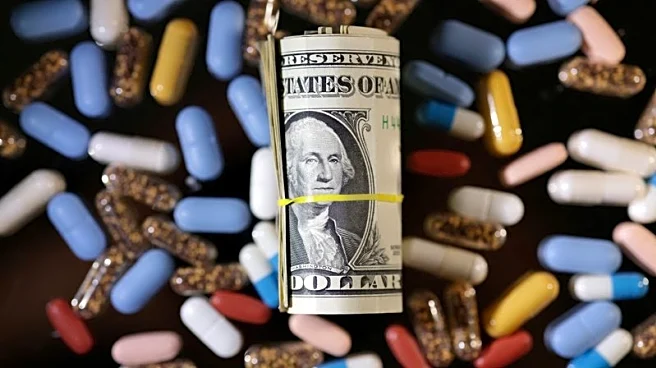What's Happening?
The U.S. government has announced the purchase of 2 million doses of a new HIV prevention drug, lenacapavir, to be distributed in low-income countries by 2028. This initiative is part of the PEPFAR program, aimed at combating HIV/AIDS globally. The drug, developed by Gilead Sciences, will be sold at no profit for use in countries heavily affected by HIV. The State Department plans to collaborate with the Global Fund to ensure the distribution of the drug, prioritizing pregnant and breastfeeding women. Lenacapavir, which offers protection for six months per dose, has been approved for use in the U.S. and Europe and is considered a powerful option for pre-exposure prophylaxis (PrEP).
Why It's Important?
This move by the U.S. government is significant in the global fight against HIV/AIDS, particularly in low-income countries where access to preventive medication is limited. By providing lenacapavir at no profit, the initiative aims to reduce new HIV infections and improve health outcomes in regions with high prevalence rates. The collaboration with the Global Fund and the focus on vulnerable groups, such as pregnant and breastfeeding women, underscores the commitment to addressing health disparities. The availability of lenacapavir could transform HIV prevention strategies, offering a more reliable option compared to daily pills.
What's Next?
The U.S. government will work with affected countries to implement distribution plans for lenacapavir. The collaboration with the Global Fund is expected to facilitate the rollout of the drug, potentially expanding access to millions more beyond the initial 2 million doses. As generic versions of the drug become available, the initiative may serve as a temporary solution until broader access is achieved. Stakeholders, including international health organizations and local governments, will likely monitor the program's impact and explore further partnerships to enhance HIV prevention efforts.
Beyond the Headlines
The initiative highlights the ethical responsibility of pharmaceutical companies and governments in addressing global health challenges. By providing lenacapavir at no profit, Gilead Sciences sets a precedent for corporate social responsibility in the healthcare sector. The program also raises questions about the sustainability of drug access in low-income countries and the need for long-term solutions beyond temporary measures. The focus on vulnerable populations reflects broader efforts to achieve health equity and reduce disparities in access to life-saving medications.










